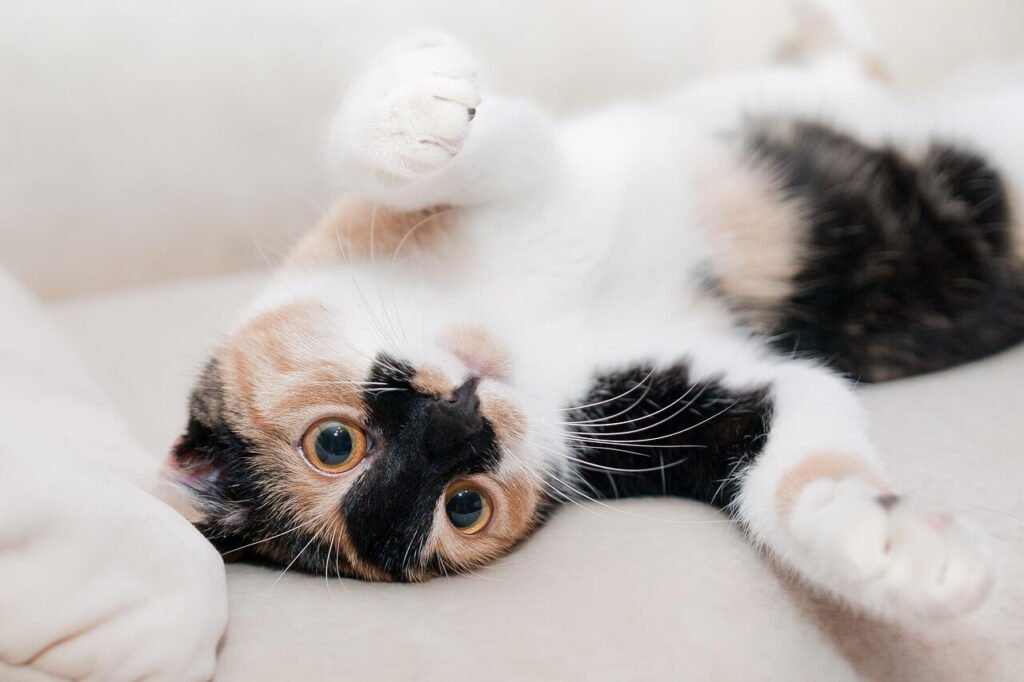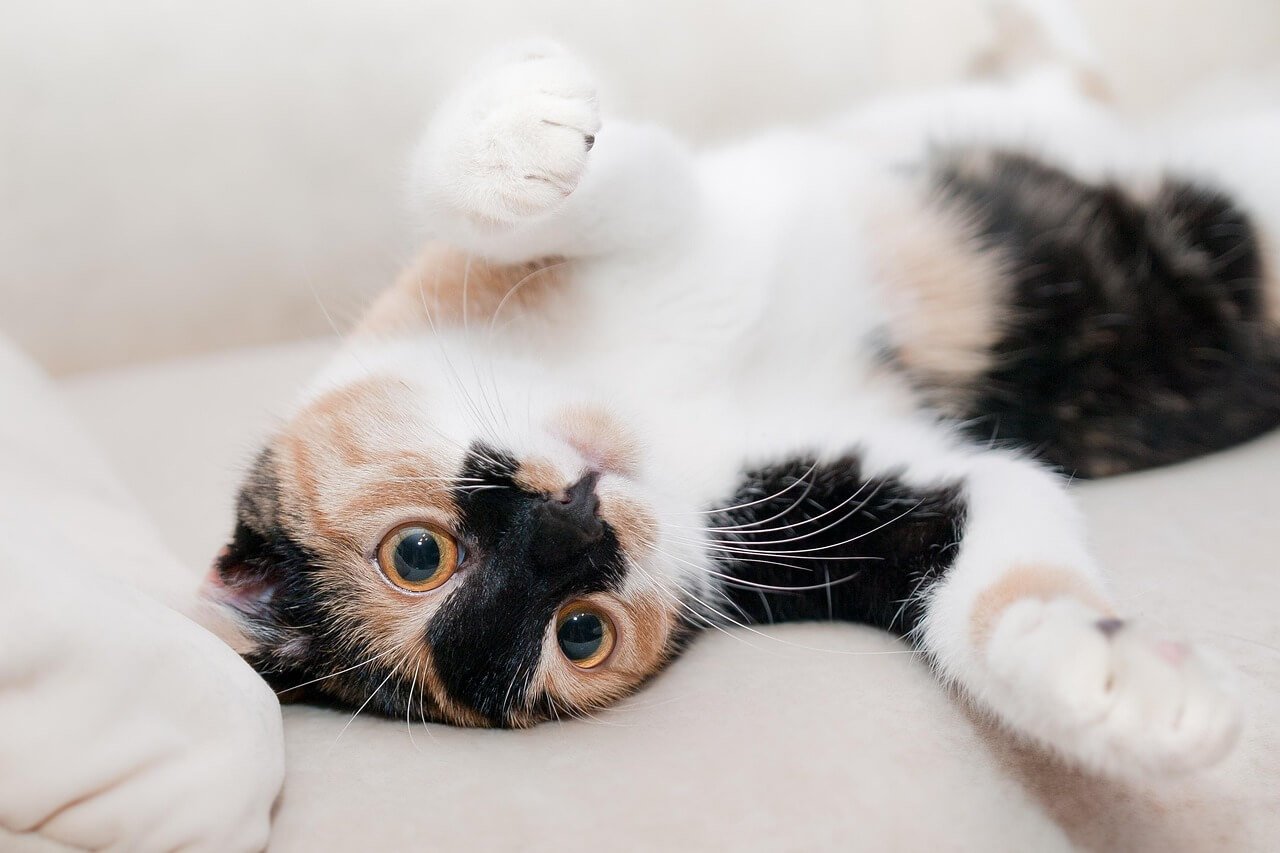Can Fleas Kill a Cat? Understanding the Risks and Solutions
Fleas are more than just an annoying nuisance for cats—they can pose serious health risks if left untreated. While it’s rare for fleas alone to directly kill a healthy adult cat, the complications they cause can lead to life-threatening conditions, especially in kittens, senior cats, or those with weakened immune systems. From severe anemia caused by blood loss to the transmission of dangerous diseases, fleas are not something to take lightly. In this guide, we’ll explore how fleas impact your cat’s health, what signs to watch for, and how to protect your feline friend from these tiny but troublesome parasites.
How Fleas Can Harm Your Cat: Key Risks to Be Aware Of
While fleas may seem like minor pests, their impact on your cat’s health can be significant. Here are some of the most common ways fleas can harm your cat:
Anemia : Fleas feed on your cat’s blood, and heavy infestations can lead to severe blood loss, especially in small or young cats.
Tapeworms : Fleas are carriers of tapeworm eggs, which can infect your cat if they ingest a flea while grooming.
Allergic Reactions : Some cats develop flea allergy dermatitis (FAD), causing intense itching, hair loss, and skin infections.
Secondary Infections : Excessive scratching due to flea bites can break the skin, leading to bacterial infections.
Stress and Discomfort : Constant irritation from fleas can make your cat anxious and affect their overall well-being.
Understanding these risks highlights the importance of flea prevention and early intervention to protect your cat’s health.
Signs That Your Cat May Have a Flea Problem
Detecting a flea infestation early is crucial to prevent complications. Here are some common signs that your cat may be dealing with fleas:
Excessive Scratching or Licking : If your cat is constantly grooming or biting at their skin, it could indicate flea bites.
Hair Loss or Bald Patches : Flea-related irritation often leads to over-grooming and hair loss in affected areas.
Visible Fleas or Flea Dirt : Look for tiny black specks (flea dirt) or live fleas in your cat’s fur, especially around the neck and tail base.
Red or Irritated Skin : Flea bites can cause redness, inflammation, or scabs on your cat’s skin.
Lethargy or Weakness : In severe cases, anemia from blood loss may leave your cat feeling unusually tired or weak.
If you notice any of these symptoms, it’s important to act quickly to address the issue and prevent further harm.
Check this guide 👉The Ultimate Guide to Cat Flea Baths: Best 7 Health Tips!
Check this guide 👉Flea Medicine Not Working on Cat? Best 7 Health Tips!

Prevention Tips for Fleas | Treatment Options for Fleas |
|---|---|
Use monthly flea prevention products | Apply topical flea treatments as directed |
Regularly vacuum your home | Use flea shampoos for mild infestations |
Wash your cat’s bedding weekly | Consult your vet for oral medications |
Keep your yard clean and trimmed | Use flea combs to remove fleas manually |
Avoid contact with stray animals | Treat your home with flea sprays or foggers |
Steps to Prevent Fleas from Harming Your Cat
Preventing fleas is far easier—and less stressful—than dealing with an infestation. Here are some proactive steps you can take to keep your cat flea-free:
Use Vet-Recommended Products : Invest in high-quality flea preventatives, such as collars, spot-on treatments, or oral medications.
Maintain a Clean Environment : Regularly wash your cat’s bedding, vacuum carpets, and clean furniture to eliminate flea eggs and larvae.
Bathe Your Cat Occasionally : While cats groom themselves, occasional baths with flea-specific shampoos can help manage infestations.
Check Your Cat Regularly : Inspect your cat’s fur and skin for signs of fleas or flea dirt, especially during warmer months.
Treat All Pets in the Household : Even if only one pet shows signs of fleas, treat all animals to prevent cross-infestation.
By taking these preventive measures, you can significantly reduce the risk of fleas harming your cat.
When to Seek Veterinary Help for Flea-Related Issues
While mild flea problems can often be managed at home, certain situations require professional veterinary care. Here are scenarios where you should consult your vet:
Severe Anemia : Symptoms like pale gums, weakness, or rapid breathing may indicate life-threatening blood loss.
Persistent Skin Infections : If your cat’s skin doesn’t improve despite treatment, a vet can prescribe stronger medications.
Tapeworm Infestation : Visible worms or rice-like segments in your cat’s feces require deworming treatment.
Flea Allergy Dermatitis : A vet can provide medications to relieve itching and prevent further skin damage.
Unexplained Weight Loss or Lethargy : These could signal underlying health issues exacerbated by fleas.
Prompt veterinary intervention ensures your cat receives the care they need to recover fully and avoid complications.
Clearing Up Myths to Better Protect Your Cat
There are many misconceptions about fleas that can lead to improper care or delayed treatment. Understanding the truth behind these myths is essential for keeping your cat safe.
Myth: Fleas Only Affect Outdoor Cats : Even indoor cats can suffer from fleas brought in by humans, other pets, or infested items.
Myth: Fleas Are Just a Summer Problem : Fleas thrive in warm environments, including heated homes, making them a year-round threat.
Myth: A Few Fleas Aren’t a Big Deal : Even a small number of fleas can multiply quickly and cause significant health issues if left untreated.
Myth: Flea Collars Alone Are Enough : While flea collars can help, they’re often not sufficient on their own to fully protect your cat.
Myth: Cats Can’t Get Fleas in Winter : Fleas adapt to indoor climates, so cold weather doesn’t eliminate the risk.
By dispelling these myths, you can take a more informed and proactive approach to flea prevention.
Exploring Non-Chemical Options for Managing Fleas
While chemical treatments are highly effective, some pet owners prefer natural remedies to complement their flea control efforts. Here are some options to consider:
Diatomaceous Earth : This non-toxic powder can be sprinkled on carpets and bedding to kill fleas by dehydrating them.
Apple Cider Vinegar Spray : A diluted solution sprayed on your cat’s fur may help repel fleas, though it’s not a standalone solution.
Herbal Flea Collars : Some collars infused with natural oils like lavender or cedarwood can deter fleas without harsh chemicals.
Regular Grooming with a Flea Comb : Using a fine-toothed flea comb helps remove fleas and flea dirt directly from your cat’s coat.
Essential Oils (with Caution) : Certain oils like peppermint or lemongrass may repel fleas, but always consult your vet before use, as some oils are toxic to cats.
While natural remedies can be helpful, they should be used alongside vet-approved methods for the best results.
Understanding the Broader Effects of a Flea Infestation
Fleas don’t just affect your cat—they can also wreak havoc on your home environment. Addressing the issue requires tackling both your pet and your living space.
Flea Eggs and Larvae in Carpets : Fleas lay eggs that fall into carpets, rugs, and furniture, creating a persistent cycle of infestation.
Increased Cleaning Efforts : Dealing with fleas often means frequent vacuuming, washing bedding, and deep cleaning your home.
Impact on Human Health : Flea bites can irritate human skin and, in rare cases, transmit diseases like Bartonella.
Odor and Hygiene Concerns : A severe flea infestation can lead to unpleasant odors and unsanitary conditions in your home.
Stress on Family Dynamics : Constant flea-related disruptions can create frustration and stress for both pets and their owners.
By addressing fleas holistically—focusing on your cat and your home—you can restore peace and cleanliness to your living space.
Frequently Asked Questions About Fleas and Cats
Can fleas kill a healthy adult cat?
While rare, untreated flea infestations can lead to severe anemia or other complications that may endanger a cat’s life.
How quickly can fleas multiply in my home?
Fleas can lay up to 50 eggs per day, leading to a full-blown infestation within weeks if not addressed.
Are indoor cats safe from fleas?
No, indoor cats can still get fleas through other pets, humans, or even secondhand items like furniture.
Can I use dog flea products on my cat?
Never use dog flea products on cats, as they can contain ingredients toxic to felines.
How long does it take to eliminate a flea infestation?
It typically takes 3–6 weeks to completely eradicate fleas from your home and pets with consistent treatment.
Protect Your Cat from Fleas for a Happy, Healthy Life
Fleas may be small, but their impact on your cat’s health can be significant if ignored. By staying vigilant, using preventive measures, and addressing infestations promptly, you can safeguard your cat from the dangers posed by these pesky parasites. Remember, your veterinarian is a valuable resource for advice and treatment options tailored to your cat’s needs. With proper care and attention, you can ensure your feline companion enjoys a flea-free, comfortable, and joyful life.
Pemphigus Erythematosus in Cats: Best 7 Expert Tips! – Learn to recognize symptoms, manage flare-ups, and improve your cat’s quality of life.
Pemphigus Erythematosus in Dogs: Best 7 Expert Tips! – Discover causes, symptoms, and treatment options to manage this autoimmune skin condition effectively.
Cat Tympanic Membrane: Best 7 Expert Tips! – Learn how to protect your cat’s eardrum, spot issues early, and ensure lifelong auditory health.
Dog Tympanic Membrane: Best 7 Expert Tips! – Learn how to protect your dog’s eardrum, spot issues early, and ensure lifelong ear health with expert advice.





